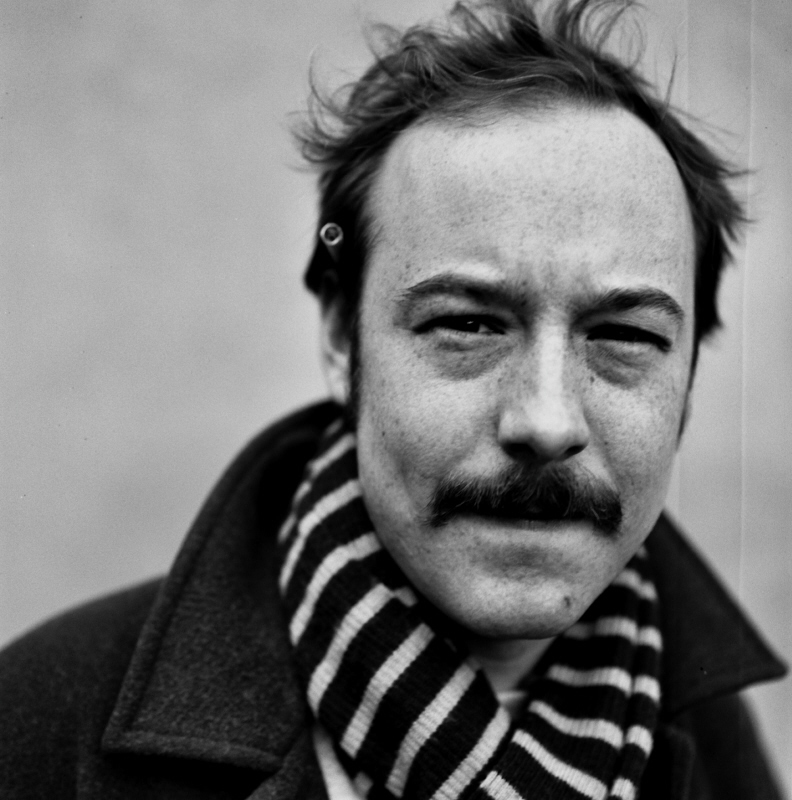For non-New Yorkers: Park Slope is a formerly radical, now upscale Brooklyn 'hood that abuts Prospect Park and has, in recent years, come to be known for its yuppie militancy, as embodied by anti-bar, -nightlife, and -noise activists, huge off-road strollers that take up half the sidewalk, and its overall entitled insufferability.
For New Yorkers: Need I say more? And you can probably guess on which side of the debate I come down. (Apologies to friends of mine that live in or love the Slope; I don't really hate it hate it, I just kind of get annoyed by it, and also see what about it annoys.)
At any rate, the Times article discusses how Park Slope, in the latter part of the Sixties, became "the leading edge of urban revitalization” (this is according to John Mollenkopf, director of the Center for Urban Research at the City University Graduate Center).
The article goes on:
[These people who began to revitalize Park Slope in the late 1960s] were part of a “postwar middle-class search for urban authenticity as a refuge from mass consumer culture,” said Suleiman Osman, a Slope native and assistant professor of American Studies at George Washington University, who is writing a book about the history of gentrification in Brooklyn. That authenticity, he said, generally lasts only for the first phase of gentrification. It’s a theme in modern urban history: the sense that authenticity is always slipping away. In short, this place was authentic until you people showed up. Repeat.I bolded the above sentence because I think it’s really the key to unlocking all of this, and maybe much more. The phrase would be even more true, or truer on a larger scale, if the word “urban” were deleted, and maybe if “authenticity” were replaced by any number of words. As Tony Soprano tells his new therapist, Dr. Melfi, during the pilot episode of the classic David Chase television series, “Lately I feel like I came in at the end of something. The best is over.” Dr. Melfi responds, “I think many Americans feel that way.”
I can identify with the feeling that “it’s” always just running through my fingers: Time, the seasons, relationships, good moments, records that defined the last year. (Whence the love I felt for Arcade Fire's Neon Bible last spring, or Feist's "Feel It All"? Where do these emotions, the city's collective listening to a few albums for a short time, go? Maybe they're mothballed somewhere in a DUMBO storage facility.) In summary and return: I would like to stop the clock, to live for years in that one good summer when we had the garden parties.
At any rate, the bolded phrase in the block quote holds true in other NY neighborhoods: I know I feel that way about Williamsburg, that is was better five years ago, and that the kids who are moving in are ruining it—But certainly someone who was in Williamsburg in the late 1990s feels that way about me, too. So what is this? Why this tendency to hate what comes after and to romanticize what comes before?


6 comments:
Good question dude. I think we have to break the cycle of thinking that the good ole' days are the only good days.
It's like in the movie "Dazed and Confused" where they talk about how the 60's rocked, the 70's sucked, and maybe the 80's will be better.
The fact is - there's something good about all times and all things.
Why walk the streets grumbling? Nothing ever lasts for long so why not enjoy the good in the midst of the annoying?
10 years from now we'll probably wish we were back in 2008 when things were good.
yeah, man, it's like that line in "dazed" when wooderson turns from the front seat to the back and asks mitch, "say, man, you got a joint?" and mitch says, "no, not on me," and then wooderson says, "it'd be a lot cooler if you did."
it's like, why can't we all just enjoy the present l-i-v-i-n and leave the philosophizing about the past and future and what would be or was a lot cooler to the critics [and newhouse]?
and don't forget: aerosmith, two weeks. all right all right all right ...
Two questions, (1) Is the neighborhood/album/movie/novel any less cool than it really ever was, or has its popularity somehow diminished it? and (2) Are we so afraid to enjoy these things and embue them with real meaning that we have to constantly find something to criticize them?
That being said, people pushing strollers need to get out the way!
To quote your brother: "there's something good about all times and all things." That's absolutely correct. There's good and bad throughout life, but our brains are wired to remember and put emphasis on the good times.
When we think back on a particularly good time (a party, a concert, a date with a fine lady, etc.) we get a tiny little rush of endorphins that make us feel warm and content. But then when we compare that feeling to the "right now" of sitting at work, drinking half-assed coffee, and dealing with idiots, we think 'man, right now sucks.' Which is kinda true.
But remember, there will be other concerts, parties, relationships, books, albums, trips, dinners, games, movies, and overall good times that will overshadow the doldrums of daily life that do suck. Those good times will occupy more space in our brain for recall later.
All good points, gentlemen. Thanks for your thoughts.
A word to the ladies with strollers: Just because you successfully reproduced doesn't mean you get to ram a stroller into my ankles.
Post a Comment